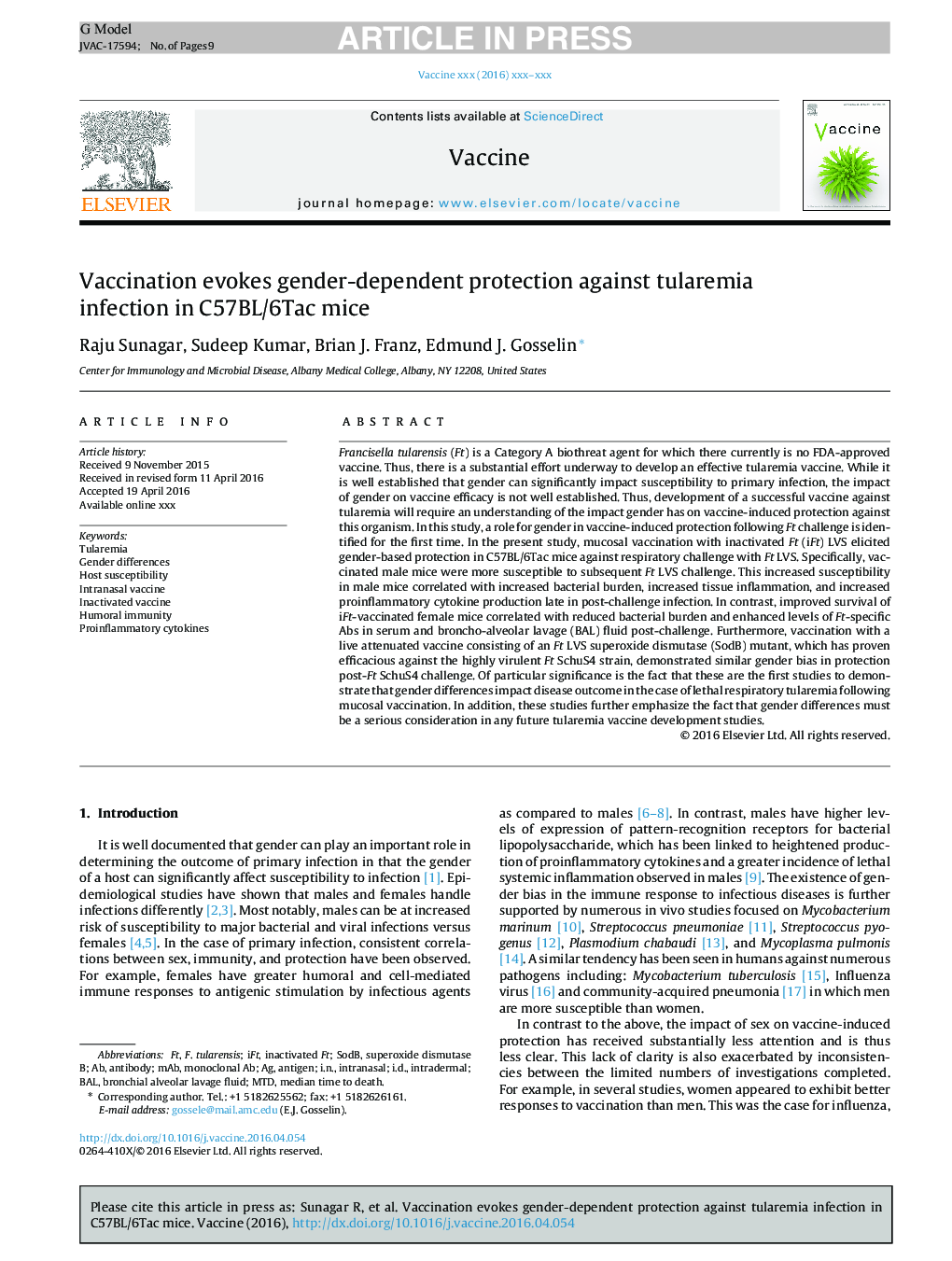| Article ID | Journal | Published Year | Pages | File Type |
|---|---|---|---|---|
| 10962427 | Vaccine | 2016 | 9 Pages |
Abstract
Francisella tularensis (Ft) is a Category A biothreat agent for which there currently is no FDA-approved vaccine. Thus, there is a substantial effort underway to develop an effective tularemia vaccine. While it is well established that gender can significantly impact susceptibility to primary infection, the impact of gender on vaccine efficacy is not well established. Thus, development of a successful vaccine against tularemia will require an understanding of the impact gender has on vaccine-induced protection against this organism. In this study, a role for gender in vaccine-induced protection following Ft challenge is identified for the first time. In the present study, mucosal vaccination with inactivated Ft (iFt) LVS elicited gender-based protection in C57BL/6Tac mice against respiratory challenge with Ft LVS. Specifically, vaccinated male mice were more susceptible to subsequent Ft LVS challenge. This increased susceptibility in male mice correlated with increased bacterial burden, increased tissue inflammation, and increased proinflammatory cytokine production late in post-challenge infection. In contrast, improved survival of iFt-vaccinated female mice correlated with reduced bacterial burden and enhanced levels of Ft-specific Abs in serum and broncho-alveolar lavage (BAL) fluid post-challenge. Furthermore, vaccination with a live attenuated vaccine consisting of an Ft LVS superoxide dismutase (SodB) mutant, which has proven efficacious against the highly virulent Ft SchuS4 strain, demonstrated similar gender bias in protection post-Ft SchuS4 challenge. Of particular significance is the fact that these are the first studies to demonstrate that gender differences impact disease outcome in the case of lethal respiratory tularemia following mucosal vaccination. In addition, these studies further emphasize the fact that gender differences must be a serious consideration in any future tularemia vaccine development studies.
Keywords
Related Topics
Life Sciences
Immunology and Microbiology
Immunology
Authors
Raju Sunagar, Sudeep Kumar, Brian J. Franz, Edmund J. Gosselin,
